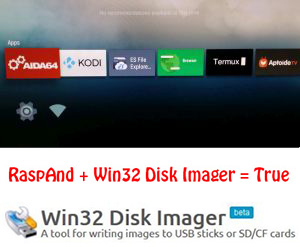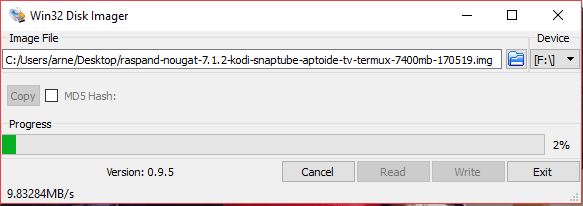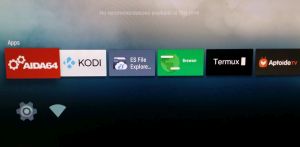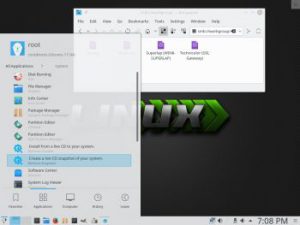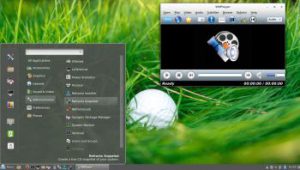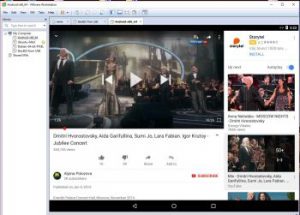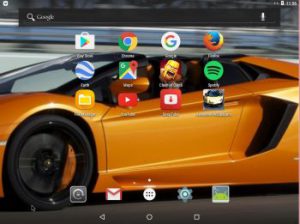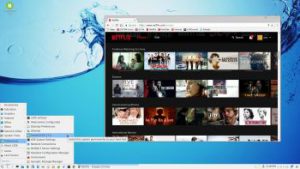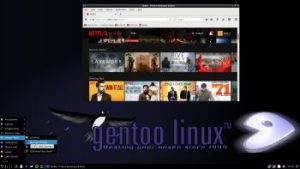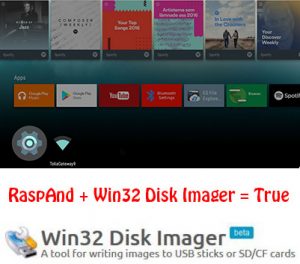 NEWS 170521 about RaspAnd Marshmallow 6.0.1
NEWS 170521 about RaspAnd Marshmallow 6.0.1
I’ve made a new extra updated version of RaspAnd Marshmallow. In this version I’ve included Kodi 17.1 (latest version which allows users to play and view most videos, music, podcasts, and other digital media files from local and network storage media and the Internet. YouTube is enabled and working very well!), Aptoide 8.2.1.1 (for installing new apps), Aptoide TV 3.2.1 (for installing new apps) and SnapTube 4.17.0.8739. (Using SnapTube you can download videos/movies from YouTube and replay them in Windows or Linux with perfect sound and video quality). Google Play Store is of course also pre-installed.
Raspberry Pi
RaspAnd Marshmallow runs very well on the new Raspberry Pi 3 computer. The system runs also on the “old” Raspberry Pi 2 computer.
How do I install RaspAnd?
Use Win32 Disk Imager in Windows or the dd-command in Linux.
What’s the point with Win32 Disk Imager?
Well, until now you had to have some basic knowledge about Linux to be able to install RaspAnd. Now you don’t need any special knowledge at all! (Just some basic computer knowledge).
About Aptoide App Manager and Google Play Store
I had to remove Aptoide in build 160915. I could not get Aptoide to work properly in that RaspAnd build. In RaspAnd Marshmallow 170521 Aptoide App Manager works very well – see this screenshot. Google Play Store works very well in both versions – see this screenshot. I.e.: A lot of apps can be found and installed.
YouTube performance
YouTube works alright in RaspAnd Marshmallow Build 170521. You can watch almost all videos. I.e. normally you will hear the sound very well, but some of the movies won’t play or play very slow with strange colors. If you want to run YouTube with (almost) perfect video and sound quality you must use Kodi 17.1, which is pre-installed. Example of perfect video quality in Kodi 17.1.
ABOUT KODI
Kodi (an award-winning free and open source (GPL) software media center for playing videos, music, pictures, games, and more) works very well in RaspAnd. You can enable a lot of Add-ons. Most important is that the YouTube Add-on is enabled by default and that it works very well. I.e. both the sound and the video performance when running YouTube in Kodi is satisfying.
Spotify
Spotify works very well in RaspAnd Marshmallow. Just log in and play your favorite music! Watch this screenshot.
Screenshots
Boot animation during the start of RaspAnd
Screenshot 1 – Google Play Store running
Screenshot 2 – RaspAnd’s new Desktop
Screenshot 3 – Aptoide running
Screenshot 4 – Kodi 17.1 running
Screenshot 5 – Example of perfect video quality while running Kodi 17.1

